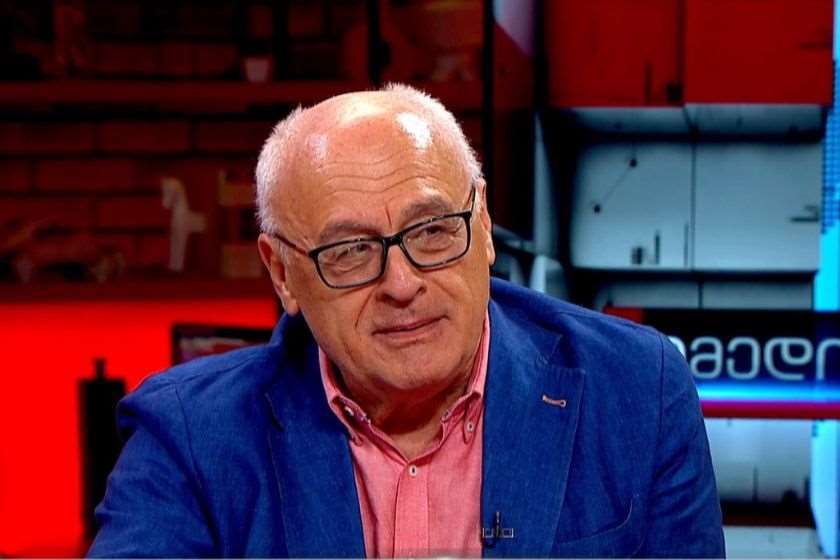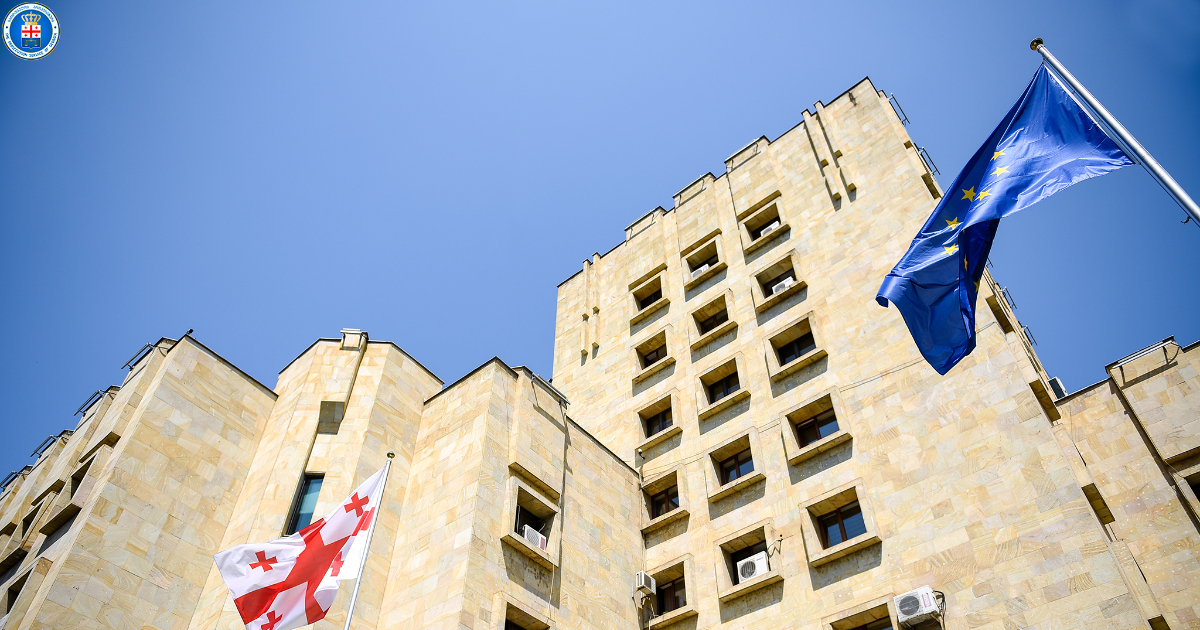PM Kobakhidze will manage Gov’t branches more effectively after electing as ruling party chair, expert Ramaz Sakvarelidze

Sakvarelidze claimed "If the US also begins operating based on instructions, this mechanism can be described as the 'deep state'—nothing else. .
Author
Front News Georgia
At the ninth congress of the Georgian Dream ruling party this week, Prime Minister Irakli Kobakhidze was elected as the party's chairman for a second term, consolidating his position as both the PM and the party leader. This political shift has raised questions about the concentration of power within the Georgian government.
In parallel, the United States House of Representatives on Tuesday adopted the MEGOBARI Act, now registered in the Senate, while the European Union has called on the Georgian government to engage in dialogue with the opposition to restore their suspended relationship.
Front-News spoke with political analyst Ramaz Sakvarelidze to understand the reasons behind Kobakhidze’s consolidation of power, the potential impact of the MEGOBARI Act and the prospects for dialogue between the Georgian government and the opposition amid the latter’s boycott of the parliament due to alleged fraud in last year’s general elections and ongoing protests against the government’s decision late in 2024 to delay the country’s EU integration until 2028.
Front-News: How do you assess the strengthening of Kobakhidze across all government verticals?
Ramaz Sakvarelidze: I do not think there is any malicious intent in this decision, nor do I see a need to explore conspiracy theories. In a parliamentary republic, it is common for the Prime Minister and the leader of the ruling party to be the same person. Such a combination of party and executive powers is a European tradition, ensuring a logical connection between governance and party leadership.
Front-News: Do you believe this decision was driven solely by this logic? Could it also reflect an effort to give Kobakhidze greater control over the government?
Ramaz Sakvarelidze: This aligns with European practices, where the party and government are led by the same person. I do not view this as an attempt to clear a path for Kobakhidze or seize power. As for the departure of Irakli Garibashvili as the party chair, that is a more complex issue that may only become clear with time. Even when Garibashvili was appointed party chairman [in 2024], there were discussions about unifying party and government leadership.
Front-News: Kobakhidze has also taken control of the State Security Service following the departure of Grigol Liluashvili. Does this indicate further centralization of power?
Ramaz Sakvarelidze: I don’t see anything concerning here. It is entirely normal for a Prime Minister to bring in members of his own team and staff the cabinet with individuals he trusts. There is no logical basis to restrict the Prime Minister’s decision-making in this regard. I don't believe Liluashvili will pose a problem for Kobakhidze. However, even if they were to disagree or not get along, who should Kobakhidze trust if not his own appointees?
This approach is consistent with the logic of politics - it allows the Prime Minister to make personnel changes based on his judgment. Such flexibility is beneficial for governance, enabling the Prime Minister to manage government branches more effectively and ensuring smooth administration.
Front-News: Regarding the MEGOBARI Act passed by the US House, now registered in the Senate - how could this impact Georgia’s domestic politics?
Ramaz Sakvarelidze: When this act was adopted, the hall was nearly empty. Only about ten people were present, four of whom opposed supporting the act. Afterward, the full assembly was brought in, and the act received support in Congress. This means that the remaining congressmen did not vote based on their own opinions or positions but rather followed instructions. Such a policy, dictated by directives, is reminiscent of the Soviet era when decisions were supported because instructions came from above.
We observe a similar pattern within the European Union, where resolutions against Georgia are adopted based on directives. A few individuals debate in the European Parliament, and then the rest are brought in to vote.
If the United States also begins operating based on instructions, this mechanism can be described as the 'deep state' - nothing else. What options does Georgia have in this situation? We see that Congressman Joe Wilson has clearly suggested that Georgia should distance itself from China and consider taking steps toward Russia. Yet, while Georgia has not made any moves toward Russia, it has signed a strategic agreement with China, and both countries are open to cooperation.
China is now a country of significant importance for Georgia, both economically and in terms of security. Russia, in turn, is wary of China and is also accountable to it. As a result, China could be a crucial partner for Georgia in addressing various challenges. At this point, Georgia has almost closed off any way back.
If the United States continues down the path of the 'deep state,' it will not be favorable for Georgia. We will once again find ourselves struggling to maintain our political course and sovereignty.
Front-News: The European Union has also set conditions for dialogue with the Georgian government. Is there room for such dialogue?
Ramaz Sakvarelidze: Let’s reframe the question: Does the opposition have any genuine leverage to engage in dialogue with the government? Does the European Union have any responsibility beyond issuing directives?
The EU's current approach suggests that if the GD party complies with these directives, it effectively admits to serious accusations. If it agrees to hold new elections, it implies that the previous elections were fraudulent. If it releases prisoners accused of assaulting police officers and storming state buildings during protests, it acknowledges these individuals as political prisoners.
Such concessions would alienate GD supporters, who would feel that their party has failed to defend their votes. Disillusioned, they may refuse to support the GD in future elections. This outcome aligns with the European Union’s apparent objective of weakening the GD, effectively assisting the opposition, particularly the collective United National Movement.
The problem is that the Georgian people are weary of the UNM, viewing it with deep distrust, almost like a plague. This sentiment has kept the party from gaining power for years.
Front-News: Do you believe the opposition is genuinely interested in pursuing new elections?
Ramaz Sakvarelidze: The opposition should not be interested in calling for new elections now. It is more disorganized and weakened than it was during the 2024 elections. Those protesting on Rustaveli Avenue claim to have no connection with political parties. If that is the case, whom should the government engage in dialogue with, and for what purpose? Who is currently the leader of the opposition, someone with whom negotiations would be meaningful? Even the young people standing on Rustaveli Avenue do not support this opposition, so what could the government possibly discuss with them? I see no prerequisites for holding new elections.
Tags:
Ramaz Sakvarelidze




